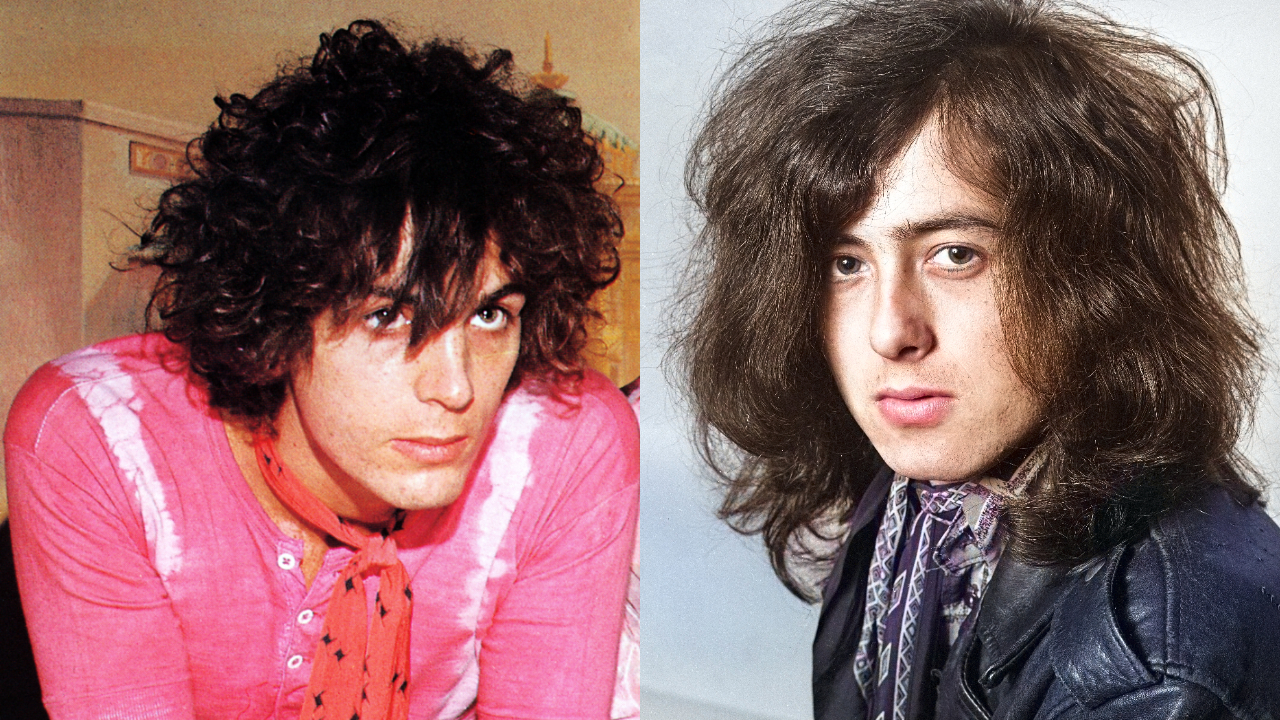"Syd Barrett was absolutely unbelievable": Led Zeppelin's Jimmy Page on Pink Floyd's "very, very cool" early years and Syd Barrett's "futuristic vision"
Led Zeppelin's Jimmy Page was hugely impressed by Syd Barrett-era Pink Floyd

Select the newsletters you’d like to receive. Then, add your email to sign up.
You are now subscribed
Your newsletter sign-up was successful
Want to add more newsletters?

Every Friday
Louder
Louder’s weekly newsletter is jam-packed with the team’s personal highlights from the last seven days, including features, breaking news, reviews and tons of juicy exclusives from the world of alternative music.

Every Friday
Classic Rock
The Classic Rock newsletter is an essential read for the discerning rock fan. Every week we bring you the news, reviews and the very best features and interviews from our extensive archive. Written by rock fans for rock fans.

Every Friday
Metal Hammer
For the last four decades Metal Hammer has been the world’s greatest metal magazine. Created by metalheads for metalheads, ‘Hammer takes you behind the scenes, closer to the action, and nearer to the bands that you love the most.

Every Friday
Prog
The Prog newsletter brings you the very best of Prog Magazine and our website, every Friday. We'll deliver you the very latest news from the Prog universe, informative features and archive material from Prog’s impressive vault.
Jimmy Page never got to see Pink Floyd play with Syd Barrett - the psych/prog rock quartet had already decided to continue without their talismanic frontman by the time Page led The Yardbirds into their final tour in the spring of 1968 - but the Led Zeppelin guitarist was hugely impressed by the contributions Barrett made in boldly pushing rock music into new sonic pastures.
Speaking to former MOJO magazine editor Phil Alexander in 2017, Page stated that while he never had the opportunity to see Pink Floyd's original line-up, "I bloody well wished I had!"
Although the final Yardbirds shows found the band venturing into psychedelic rock territory - "to us there was far more to it than just being stoned and playing one chord" Page recalled - Page wasn't impressed by many artists operating under the psych umbrella, but in Floyd Floyd he heard a band who were already changing the conversation in terms of where rock music could be pushed.
`"I definitely listened to them and in the day, I saw some of the footage that we’ve all seen now," he told Alexander. "Syd Barrett was absolutely unbelievable in terms of what he was doing. He took a step sideways and channelled all this amazing stuff. Their version of psychedelia was very, very cool. But there was stuff that was labelled psychedelia – and not wishing to name names – that was absolutely crap. But what they [Floyd] were doing was seriously experimental and it meant a lot."
In conversation with Guitar World magazine editor-in-chief Brad Tolinski, as documented in the 2012 book Light & Shade: Conversations With Jimmy Page, Page actually bracketed Barrett alongside Jimi Hendrix as a musician with a "futuristic vision" for guitar music.
"Syd Barrett’s writing with the early Pink Floyd was inspirational," he said. "Nothing sounded like Barrett before Pink Floyd’s first album. There were so many ideas and so many positive statements. You can really feel the genius there, and it was tragic that he fell apart. Both he and Jimi Hendrix had a futuristic vision in a sense."
Barrett's time with Pink Floyd came to an end in January 1968, after his bandmates tired of his erratic behaviour, caused by his deteriorating mental health: he exited the music business for good in 1972, and retired from public life.
In a recently-released documentary about the late musician, Have You Got It Yet? The Story Of Syd Barrett And Pink Floyd, David Gilmour admits to "a regret or two" about how his relationship with Barrett played out.
"We probably did about as much as we could have, although we were all very young," Gilmour says. "But I have a regret or two. I never went to see him, even though his family kind of discouraged it and I regret that I never went up to his house and knocked on the door. I think both Syd and I might have gained something out of one or two people popping ’round to his house for a cup of tea."
Sign up below to get the latest from Classic Rock, plus exclusive special offers, direct to your inbox!

A music writer since 1993, formerly Editor of Kerrang! and Planet Rock magazine (RIP), Paul Brannigan is a Contributing Editor to Louder. Having previously written books on Lemmy, Dave Grohl (the Sunday Times best-seller This Is A Call) and Metallica (Birth School Metallica Death, co-authored with Ian Winwood), his Eddie Van Halen biography (Eruption in the UK, Unchained in the US) emerged in 2021. He has written for Rolling Stone, Mojo and Q, hung out with Fugazi at Dischord House, flown on Ozzy Osbourne's private jet, played Angus Young's Gibson SG, and interviewed everyone from Aerosmith and Beastie Boys to Young Gods and ZZ Top. Born in the North of Ireland, Brannigan lives in North London and supports The Arsenal.
